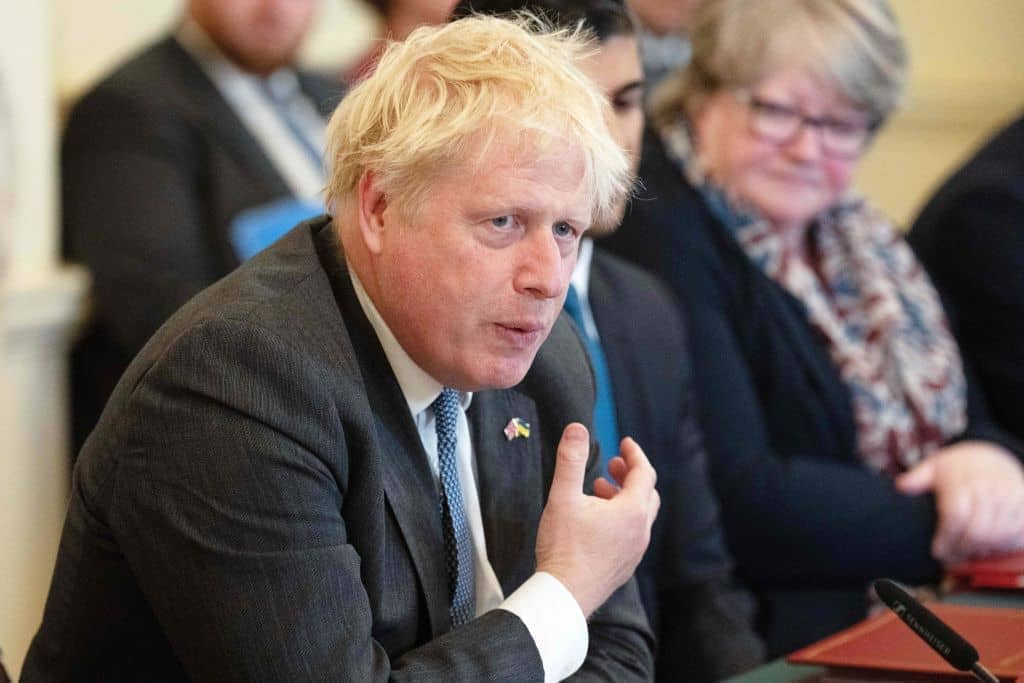In politics, a leader sometimes needs to be ruthless and mean, patiently soak up the public opprobrium directed his way and wait until most people see that his stance was correct and necessary. When it comes to the state of the economy, and the pressures of inflation in particular, this is where we have got to.
Simon Clarke, the Chief Secretary to the Treasury, appears to understand this. He has offered no concessions to trade unions and public sector workers demanding higher pay to insulate themselves against price rises, both current and future.
Instead, this week Mr Clarke told the public sector plainly that they won’t be getting wage rises to keep up with inflation and must therefore take lower living standards on the chin. He also signalled to private sector employers that they too should take a similarly tough stance with their workforces.
His reasoning is that big pay rises will not only feed into more price rises in the short term by adding directly to production costs, but, more importantly still, will bake in expectations of high inflation in the medium term.
‘Sustained higher levels of inflation would have a far bigger impact on people’s pay packets in the long run, destroying savings and extending the difficulties we’re facing for longer,’ was how he put it.
In effect, Johnson is calling for the battle between the RMT and rail companies to end in a score draw
Compare this with Boris Johnson’s latest statements on the rail strike currently being carried out by members of the notoriously militant RMT union. The union are demanding a minimum seven per cent pay settlement and that productivity-enhancing changes to outdated working practices are dropped.
The Prime Minister is urging a ‘sensible compromise’ to solve the rail dispute. He has said that ‘hard-working public sector workers’ should be rewarded with pay rises that are ‘proportionate and balanced’. It’s the return of the language of old, beloved by 1970s industrial correspondents, about getting around the table and giving the other side half of what it wants.
In effect, Johnson is calling for the battle between the RMT and rail companies to end in a score draw and for the government to dispense slightly higher than normal pay rises to its own employees to partially compensate them for the inflationary spike.
All of this brings to mind a saying of Sir Bernard Ingham, long-serving press secretary to Margaret Thatcher in the 1980s: ‘Spare me a politician who wants to be loved.’ For one thing, Johnson is never going to be loved by huge swathes of the public – it’s way too late for that. Secondly, sensible voters understand that mature political leadership involves making tough decisions that will prompt much moaning and many expressions of venom.
One of the things that is traditionally attractive about the Conservative party in tough economic times is that it knows what needs to be done. It is cold-hearted enough to impose unpleasant solutions in spite of the suffering that may involve.
Getting the economy back in good order will involve such tough decisions. There will be furious outbursts from the Left that Rishi Sunak’s wealth means he will never be personally troubled by austerity. They will decry cabinet ministers in general for being out-of-touch ninnies on £140,000 a year. Socialist food bloggers will vent about how shameful it is that those on low incomes must allegedly choose between ‘heating and eating’. Johnson himself will be vilified for not caring and not doing enough, even if he cares too much and spends too much time and money seeking to soften the blow.
The outcome of this rail strike will determine whether workers in other highly unionised sectors such as teaching and healthcare decide to hit it hard in the autumn. When it comes to this dispute, what is required is a clear defeat of the trade union involved.
Rather than focusing on pushing the idea to the commuting classes that Labour is guilty by association for the disruption they are encountering, the government should be coming up with plans to beat the RMT.
Kwasi Kwarteng is, for instance, quite right to propose repealing legislation that prevents agency staff being hired to replace workers who are on strike. This is despite the fact opponents of such a change say it could be ‘against international law’ – something the liberal Left seem to deem almost everything these days.
Johnson should be thinking in terms of the legendary strike-busters of the 1980s: Ronald Reagan versus the US air traffic controllers, Rupert Murdoch versus the print unions and, yes, even Maggie Thatcher versus the NUM.
Because the question in the back of the minds of millions of Brits is now as follows: is Boris prepared to be a bastard or are we going to end up a basket case?







Comments